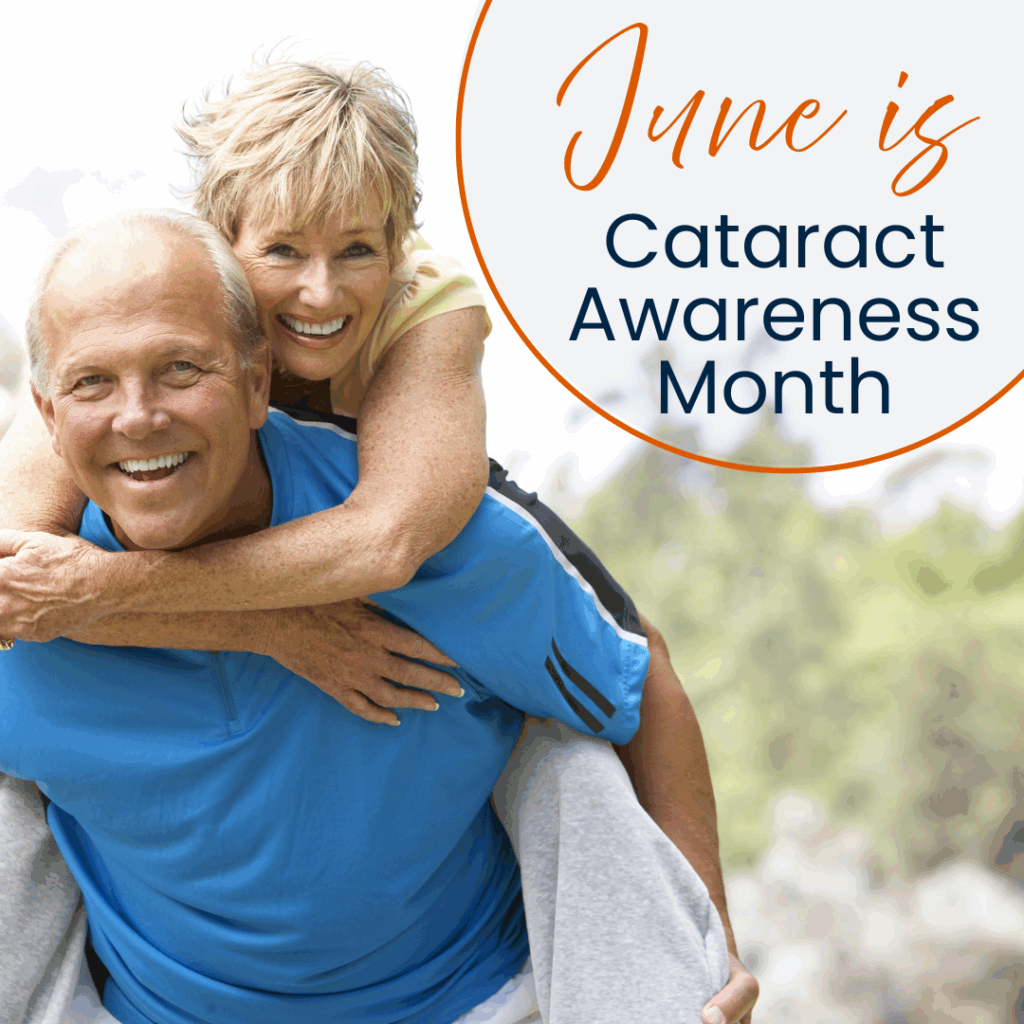June is Cataract Awareness Month: Protecting Vision, One Eye at a Time
Posted by: West Georgia Eye Care Center in Cataract Surgery, Eye Health, Eye Safety on June 5, 2025
Every June, we recognize Cataract Awareness Month to spread vital information about one of the leading causes of vision loss worldwide. Cataracts may be common, especially as we age, but they are also highly treatable with early detection and timely care. We believe that awareness is the first step toward prevention and better eye health.

What Are Cataracts?
A cataract is the clouding of the eye’s natural lens, which lies behind the iris and the pupil. The lens works like a camera lens, focusing light onto the retina for clear vision. As we age, proteins in the lens may break down and clump together, forming cloudy areas that interfere with vision.
Cataracts typically develop slowly and may not affect vision initially—but over time, they can severely impact daily life if left untreated.
Common Signs of Cataracts
Be on the lookout for:
- Blurred, foggy, or dim vision
- Increased glare or halos around lights
- Difficulty seeing at night
- Colors appearing faded or yellowed
- Frequent changes in glasses or contact lens prescriptions
If you or a loved one are experiencing any of these symptoms, it may be time for a comprehensive eye exam.
Who Is at Risk?
While age is the primary risk factor (most cataracts develop after age 40), several other contributors include:
- Diabetes
- Smoking
- Excessive UV exposure
- Long-term use of steroids
- Eye injury or surgery
- Family history of cataracts
Cataract Treatment: A Clear Path Forward
The most effective treatment for cataracts is surgical removal of the cloudy lens, replaced with a clear artificial lens (IOL). Cataract surgery is one of the safest and most successful procedures, with over 98% of patients experiencing improved vision post-surgery.
Modern advancements in lens technology also offer options for correcting other vision problems like astigmatism or presbyopia at the time of surgery.
Prevention and Eye Health Tips
While not all cataracts are preventable, you can lower your risk and delay progression by:
- Wearing UV-protective sunglasses
- Maintaining a healthy diet rich in antioxidants ( vitamin C, vitamin E, leafy greens, carrots, etc.)
- Managing chronic conditions like diabetes
- Quitting smoking
- Limiting alcohol consumption
- Scheduling regular eye exams, especially after age 40
Let’s Talk About It
This June, take the opportunity to prioritize your vision. Whether for yourself or a loved one, raising awareness and staying informed can prevent unnecessary vision loss. Cataracts may be common, but with early action, clear vision is within reach.
During Cataract Awareness Month, let’s encourage our communities to prioritize eye health. Share the facts. Schedule a check-up. Talk to your loved ones.
Vision is a gift—let’s protect it together.





